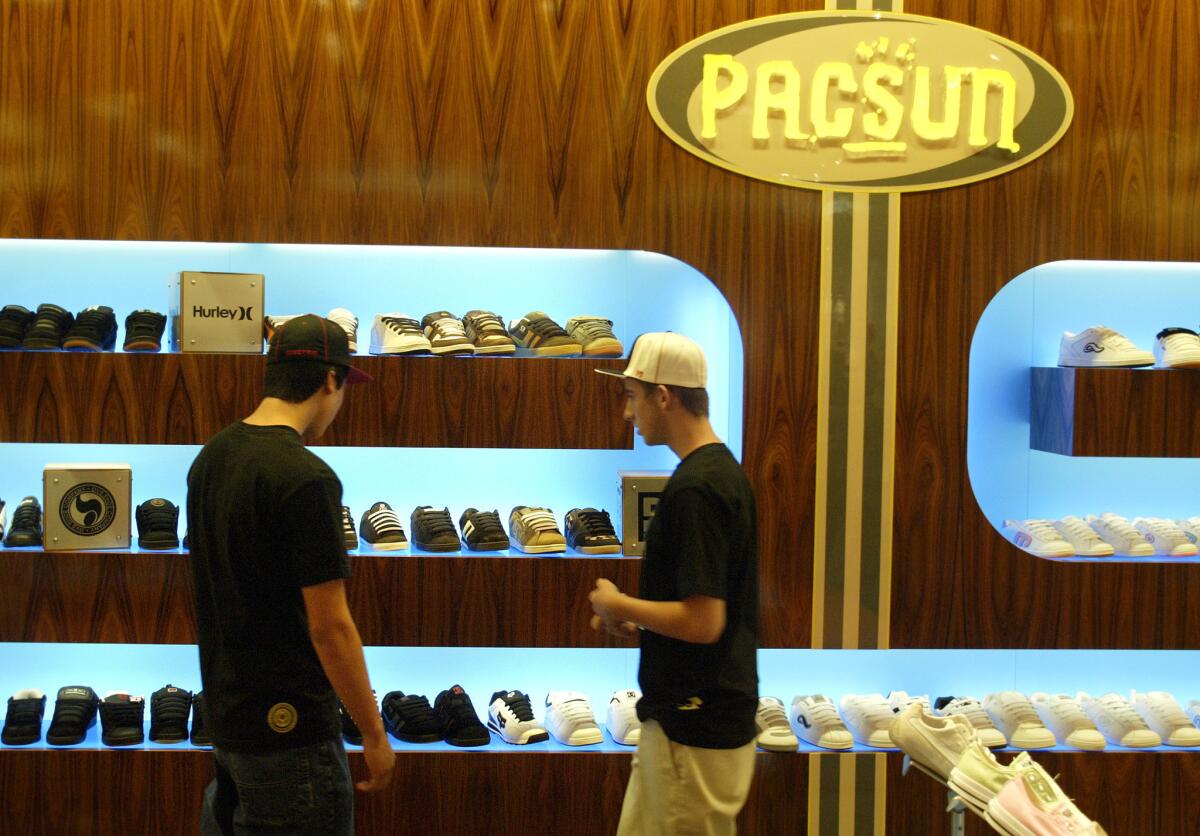Eight state AGs probe retail chains’ ‘on-call’ work schedules

Attorneys general for eight states have sent letters to 15 large companies, including PacSun, about on-call policies, which require employees to be ready to work on a given day but do not guarantee that they will be needed in a store.
Retailers’ use of unpredictable work shifts has drawn the attention of attorneys general in eight states, including California.
The attorneys general sent letters to 15 large companies about the on-call policies, which require employees to be ready to work on a given day but do not guarantee that they will be needed in a store.
Demanding that workers clear their day of any personal or educational commitments without rewarding them with pay is unfair, the state officials wrote in their letters.
The companies that received the inquiry were American Eagle, Aeropostale, Payless, Disney, Coach, PacSun, Forever 21, Vans, Justice Just for Girls, BCBG Maxazria, Tilly’s, Inc., David’s Tea, Zumiez, Uniglo and Carter’s.
“Workers who must be ‘on call’ have difficulty making reliable childcare and elder-care arrangements, encounter obstacles in pursuing an education, and in general experience higher incidences of adverse health effects,” the letters said.
A spokeswoman for Forever 21 said the chain doesn’t permit on-call scheduling.
Among the questions asked of retail chains was the extent to which they save money with on-call staffing. The letters ask for records of employees paid for fewer than four hours on a workday.
In California, companies must compensate workers with up to four hours of wages if they are ready to provide services and aren’t asked to, or if they are promised a long shift and only work a fraction of it.
As computerized scheduling systems have become more commonplace, retail giants have sought the flexibility of slotting more employees into work shifts on short notice. States and localities are pushing back. In 2014, San Francisco passed a Retail Workers Bill of Rights that required retailers in the city to provide workers with their schedules two weeks in advance.







